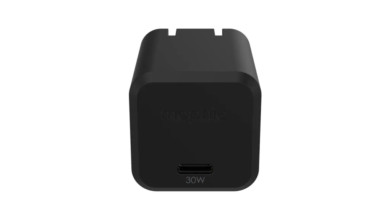
A significant update has just been made to the popular AI chatbot.
If you’ve ever tried asking ChatGPT about the news, you know the chatbot was only able to produce a small number of responses, if any at all. It is altering.
In a move that greatly increases the capabilities of the chatbot, the artificial intelligence startup OpenAI said on Thursday that it is gradually rolling out plugins for ChatGPT.
The first wave of plugins, which are now available in alpha to select ChatGPT users and developers, allow ChatGPT to tap new sources of live data from the web, including third-party sources such as Expedia, Kayak and Instacart. Prior to this upgrade, ChatGPT was restricted to drawing information from its training data, which ran until 2021.
“Though not a perfect analogy, plugins can be ‘eyes and ears’ for language models, giving them access to information that is too recent, too personal, or too specific to be included in the training data,” OpenAI said on its website.
For example, ChatGPT may now provide information on queries like how the box office receipts of this year’s Oscar winners compare to those of other recently released films. The browser plugin, which displays the sources the generative AI service is obtaining information from before spitting out a response, is responsible for this new functionality.
OpenAI co-founder Sam Altman tweeted on Thursday, “Plugins are pretty experimental still but we think there’s something amazing in this direction. It has received a lot of requests.
Since its release in November, ChatGPT has generated a lot of interest in the computer industry since it overlays a huge language model with a conversational-style user interface. Companies like Google, Microsoft, Adobe, Snapchat, and Grammarly have hurried to demonstrate and release similar generative AI capabilities in their own products during the past few months.
However the outcomes that systems like ChatGPT produce have obvious flaws. An internet-connected chatbot poses a concern, according to OpenAI’s own research. For example, it might have a propensity to cite sources that aren’t trustworthy or, as OpenAI notes, “raise safety difficulties by taking harmful or unintentional acts, enhancing the capabilities of bad actors who would swindle, mislead, or abuse others.”
The advantages have been emphasised by those who support these AI services.
Greg Brockman, a co-founder of OpenAI, on Thursday shared a video on Twitter that explains how to use ChatGPT’s Instacart plugin to help with meal planning. In the video, ChatGPT suggests a recipe for chickpea salad before adding the necessary items to Instacart so they can be ordered with only a few instructions.
An Expedia Twitter video demonstrates how to use the Expedia plugin to effectively transform ChatGPT into your AI travel advisor, assisting customers in making hotel and airfare reservations. Formerly, ChatGPT was only able to locate locations and make itineraries, but not this.
“Plugins can be installed to assist with a wide range of tasks. We can’t wait to see what the devs come up with!” Tweets were made by Altman.
OpenAI claimed it has put measures in place to mitigate dangers in the responses ChatGPT gives to questions and has first restricted access to a small set of users and engineers. A queue for interested parties is available here.











